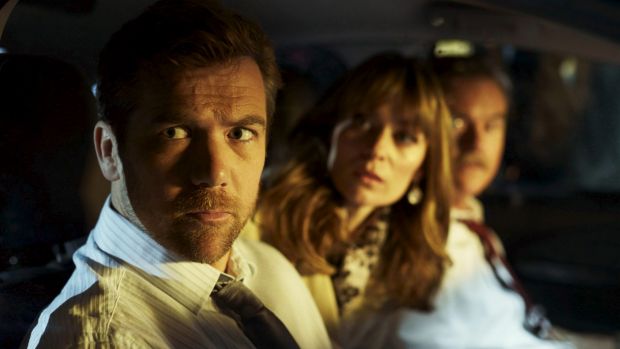‘No Activity’.
Stan has warned it could not continue to invest in quality local content or provide employment opportunities for Australians if content quotas are imposed on SVOD services.
A quota on the sector “would only serve to stifle innovation and creativity at a time when Stan needs to be as nimble as possible to compete with an influx of global tech/media organisations into the market, “ the platform co-owned by Nine Entertainment and Fairfax Media has told the Australian and Children’s Screen Content Review.
“Stan is not yet profitable and simply cannot afford to have the allocation of its content budget governed by quotas.”
Similarly, Google’s submission to the review argues that a quota would “substantially risk hampering the amazing innovation in content creation and distribution that the internet has enabled, and likely result in the wrong content being produced in the wrong formats on the wrong platforms.”
Screen Producers Australia, the Australian Directors Guild and the MEAA are among those bodies which have urged the government to impose local content obligations on streaming services.
Complaining that commissioning local productions costs the platform at least five to six times more than licensing premium international content, Stan suggested the government could underwrite the amount of international income which it estimates a project will deliver.
Google, meanwhile, advocated for the adoption of platform-neutral content production incentives including tax concessions or offsets for Australian creators.
Stan has doubled its investment in Australian production each year since its launch in January 2015 and relies on international sales to defray its costs.
Screentime and Emu Creek Pictures’ Wolf Creek series was sold to Lionsgate in North America and Latin America and to Fox UK, while format rights to Jungle’s No Activity were sold to US SVOD service CBS All Access.
Stan criticised Screen Australia’s requirement of a local presale of at least $440,000 per broadcast hour from a commissioning platform as an overbearing and often prohibitive expense while noting it gets no equity for its investment.
It said there should either be no minimum licence fee or the fee should reflect the current market rate for acquisitions, and any resulting shortfall in the finance plan for a production would be made up in equity contributions from the investing parties.
“It is extremely difficult to recoup costs under the current system and unless more material opportunities to recoup are created, Stan will not be able to grow its investment in local production,” it says.
The firm also griped about the added cost of buying out exclusivity or holdbacks against free-to-air, pay TV and home entertainment windows, observing, “Cleary, equity and balanced distribution rights are essential to Stan’s ability to sustainably fund local content production.”
If the government underwrote the anticipated international revenue, that would give commissioners more time to address the pre-sale of international rights and/or distribution guarantees to complete the finance plan. Also the producer and the platform would benefit from the opportunity to more diligently assess the international sale options and therefore maximise the value for those rights.
Stan joined the chorus of those pushing for a doubling of the TV Producer Offset to 40 per cent but said the equity splits should more fairly reflect the levels of investment made by each party, thereby enabling the commissioning party to fairly monetize the content.
In its submission Google stressed the number of content creators in Australia has more than doubled over the last 15 years. Some 230,000 new online video creators are taking advantage of the lower barriers of entry and new global audiences.
There are now more than 65 Australian YouTube channels with more than one million YouTube subscribers, more than double last year’s.
In the month of July 14.7 million Aussie adults spent an average of 20 hours and 59 minutes per person watching videos on YouTube.
The submission quotes Screen Australia CEO Graeme Mason, who recently described Danny and Michael Philippou, the twin brothers from Adelaide behind YouTube channel RackaRacka, as the most successful content creators in Australia with more than four million subscribers on YouTube.
RackaRacka’s videos have been watched more than 500 million times and the most popular, Marvel VS DC (Avengers Battle!) has been viewed nearly 50 million times.
The internet giant invests directly in local Australian screen content creators through direct funding including partnerships with Screen Queensland, training and providing production facilities via YouTube Pop-up spaces.
The 14 videos developed by Skip Ahead, a joint initiative between Google and Screen Australia, have clocked more than 27 million views on YouTube. Past recipients of the scheme include Draw with Jazza, SketchShe and Mighty Car Mods.
The Mighty Car Mods team has been signed by Discovery Networks to broadcast episodes on Foxtel and in the US, Europe, Africa and the Middle East.
Following the international success of SketchShe on YouTube, the female sketch comedy trio of Shae-Lee Shackleford, Lana Kington and Madison Lloyd were recently announced as hosts of Megastars, the world’s first online-only talent show being shot in Los Angeles.
YouTube’s premium ad-free subscription service, YouTube Red, has invested in its first Australian original production Fruit Ninja, a 13-episode animated series created in partnership with Australian game developer Halfbrick.
Google concluded: “Given the right opportunities, Australian creators will continue to tell Australian stories in new and innovative ways. In the case of the internet, we believe that this will continue to occur without any regulatory compulsion or intervention.
“As a result, Google submits that the focus for any policy solutions should be around content creation, rather than on content distribution side.”


